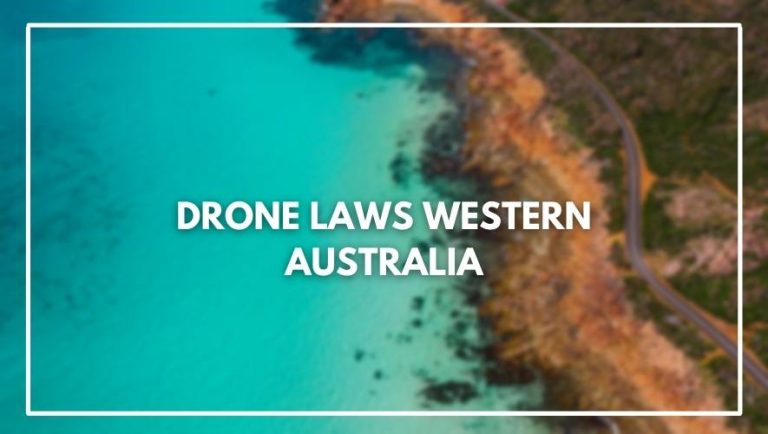Drone laws in Kenya are a bit of a mess. The country has been slow to create new drone regulations, and even once they were created, their enforcement was sporadic.
To make matters worse, due to the fact that Kenya is so large and its population spread out across several different regions with varying economic conditions and levels of technological advancement, there hasn’t been one single set of laws governing drones within the country.
The good news is that while we may not have seen much change in recent years when it comes to drone laws in Kenya (aside from the fact that they now exist), there seem to be some signs pointing towards progress for both new pilots and those who want to expand their knowledge about what’s allowed when flying a UAV around Kenya’s borders.
Drone Laws Kenya

Kenya Has Adopted A New Drone Regulation
Kenya has adopted a new drone regulation framework and seeks to implement the laws by November 1st, 2018.
The Civil Aviation Authority (CAK) is the regulatory body responsible for implementation of these laws. The CAK previously released two consultation papers on proposed regulations: one addressing airspace management and another addressing operator licensing requirements.
The second phase will deal with manufacturing of drones in Kenya and their use by various industries.
These New Rules Were Published In The Kenya Gazette
The new rules state that you can apply for a permit to fly your drone in Kenya. They also clarify some details about how to do this.
For example, the application fee is $900, which may be refundable if your application is rejected. You will need to get a new permit for each flight that you want to make—so if you’re planning on flying your drone every weekend, you’ll have to pay another $900 each time!
There are some restrictions on where drones can fly. Their altitude must not exceed 200 feet (60 meters) above sea level or 400 feet (120 meters) above ground level; they can only be flown within line of sight; and they must stay at least 5 kilometers away from airports or heliports (which include any place where helicopters land).
These Drone Regulations Will Likely Remain In Effect
After these regulations have been in effect for 24 months, the government of Kenya will review them. The first report will be submitted after six months, and the second report after 18 months. A final report will be submitted 24 months after they become effective.
The Kenyan government may also make amendments to these rules based on the first and second reports received as well as any new information that might be available at that time.
The Government Of Kenya Will Continue To Review These Rules
The government will review these rules for two years aiming to submit the first report on their effectiveness after six months.
A second report will then be submitted after 18 months and a final one, at the end of 24 months.
To Operate An Unmanned Aircraft Of Any Kind In Kenya
To Operate An Unmanned Aircraft Of Any Kind In Kenya you must obtain a special permit from the Director-General of CAK. To apply for this permit, contact us with your contact details and a description of your proposed operation. You will then receive further instructions on how to proceed.
Operation Permits Are Only Granted When The Uav Is Being Used
You will need to apply for an operation permit if your UAV is being used for commercial purposes or public interest.
- What are commercial purposes?
These can include aerial photography, surveying and mapping, construction site monitoring, search and rescue operations, disaster management and firefighting.
- What are public interest purposes?
These can include aerial photography of historical sites, monitoring animals in their natural habitat etc.
If A Drone Is Being Used For Recreational Purposes Or Sport
If A Drone Is Being Used For Recreational Purposes Or Sport (i.e., you’re a hobbyist), then no permit is required but you must engage with an approved operator before flying your drone.
The approved operator must be a holder of a Special Flight Operations Certificate for Kenya, meaning that they have submitted an application to the Kenya Civil Aviation Authority and been granted permission to operate drones in Kenya.
The approved operator must also demonstrate that their proposed operation will be conducted according to the requirements of their Special Flight Operations Certificate for Kenya, which includes:
- An assessment by the National Inspectorate Division (NID) on whether there are any safety concerns about operating in this particular airspace at this time and for this purpose;
- An assessment by NID on whether there are any security concerns about operating in this particular airspace at this time and for this purpose;
How To Register Drone In Kenya

Get Permission From The Caa To Operate Your Drone.
Before you can register your drone in Kenya, you’ll need to get permission from the CAA to operate your drone.
You’ll be issued an operator’s certificate in the name of the person applying for it. This letter must be issued by the Director General of Civil Aviation on official letterhead and should contain:
- The name and signature of a senior officer at CAAD (the CAA)
- Your full name as well as that of any other person who may operate or control your drone
- A statement saying that you have been briefed about Kenyan airspace rules and regulations regarding unmanned aircraft
The operator’s certificate can only be issued once your application has been approved by CAAD.
Register Your Drone
Before you can fly your drone in Kenya, it must be registered with the Civil Aviation Authority of Kenya (CAA).
To register your drone, visit the CAA website at www.caak.go.ke and follow these steps:
- Navigate to the “Aircraft Accident/Incident Form” page and click on “Downloadable Forms”.
- Click on “Downloadable Section 73(2) Accident/Incident Report for Aircraft Incidents”.
- Complete all sections of this form with accurate information about your drone and its current condition—including its serial number, make and model number—and submit it online via email or fax to +254 20 222072 or +254 788 239995 respectively
Get A Pilot Certificate.
To get a pilot certificate, you must be 18 years or older and in possession of a national identity card. You’ll also need to pass an exam that tests your reading, writing and understanding skills in English.
You must be fit and healthy enough to operate a drone safely as well; if you fail the medical test for any reason (even if it’s because you’re wearing socks with sandals), then you won’t be able to get your license until all issues are resolved.
Finally, being Kenyan is required—if at any point during the application process you aren’t sure whether or not this applies to you (or about anything else on this list), ask someone who works at Kenya Civil Aviation Authority!
Keep Your Drone Within Sight And Fly At A Maximum Of 400 Feet.
You are liable for your drone, so keep it within your sight.
The maximum height a drone can operate is 400 feet (120 meters). If you are flying above this height you must notify air traffic control.
The maximum distance a drone can operate from the pilot is 400 feet (120 meters).
Declare Location Of Operation.
- Where will you be flying?
- How far will you be flying?
- How long will you be flying?
- What is the purpose of flying (commercial, recreational or research)
- How high will you be flying (maximum altitude)
Fly A Maximum Speed Of 50 Metres Per Second (180km/h).
- You may fly at a lower speed if desired.
- You may only fly in a straight line and not at an angle.
Ensure Your Drone Weighs Less Than 25kg.
The weight of your drone is critical to register it in Kenya. In fact, the maximum weight for a drone in Kenya is 25kg.
You must weigh it before flying and ensure that its weight does not exceed 25 kilograms. If you use a drone weighing more than 25kg, you must get special permission from the CAA.
If you do not own the drone but wish to fly it in Kenya, then you need to obtain permission from its owner first before weighing it and registering with CAA as per the above procedure
Do Not Fly Near Other Aircraft, People Or Properties Without Their Prior Consent.
- Do Not Fly Near Other Aircraft, People Or Properties Without Their Prior Consent.
- Fly only during the day and in good weather conditions. It is illegal to fly a drone at night or if visibility is less than 3km (1 statute mile).
- Always stay away from an airport or helicopter landing site, even if it’s closed to public use.
- Fly at least 30 minutes before sunset or at least 30 minutes after sunrise in order to make sure there are no obstacles in your way.
Are Drones Allowed In Kenya
If You Cross Borders By Air With A Drone
If You Cross Borders By Air With A Drone, it is your responsibility to ensure that the destination country will allow the importation of the drone. You must have a permit from the destination country before taking your drone abroad.
If you don’t have the necessary paperwork, or if there are restrictions on importing drones into that country, then your drone may be confiscated at customs upon arrival and/or fines levied against you by local authorities.
In some cases where flying drones is banned (like in Kenya), it’s possible to fly them in domestic airspace without incident.
However, if caught flying one across international boundaries without authorization or documentation for it being allowed into another nation’s airspace could result in fines and possible arrest warrants issued against whoever was operating that particular aircraft at time when violation occurred.
The Use Of Drones For Commercial Purposes
If you want to use your drone for commercial purposes, you’ll have to check with the local aviation authority.
There are many countries that prohibit the use of drones for commercial purposes altogether. In these countries, it is not only illegal but also impossible to operate a drone commercially.
The reason why commercial drone operation is sometimes prohibited is because many regulations have been put in place by aviation authorities and/or governments that aim to ensure fair competition between businesses and minimize risks to people or property on the ground.
For instance, in Kenya, drones are not allowed within 5 km from an airport or within 50 meters above a person who isn’t flying it (Kenya Airports Authority 2016).
Despite Their Usefulness, Drones Are Banned In Many Places.
Despite Their Usefulness, Drones Are Banned In Many Places. Drones have the potential to cause harm and could potentially crash into people or structures.
Many countries are concerned about security, as they may be used by terrorists to spy on people or cause damage by crashing into buildings.
Conclusion
Now that you have seen what you can do with a drone and have the benefits of owning one, it is time to understand the law on how you will operate your drone.
If you are in Kenya or thinking of traveling here, you need to know about the drone laws Kenya. Knowing the drone laws is important since it will help you avoid running into problems with the law.
Frequently Asked Questions (drone Laws Kenya)
Can I Export A Drone From Abroad To Kenya?
A drone is a machine or aircraft that can fly autonomously or be piloted remotely. You need to understand the definition of drones before you decide if it is possible to import a drone into Kenya.
Drones are regulated by the Kenya Civil Aviation Authority (KCAA) so they can be imported, exported, and used in Kenya by citizens. However, there are some laws you have to take account of when flying drones in Kenya such as:
- Respecting other people’s privacy
- Not flying near airports or military bases
- Not flying too high above buildings
What Is The Registration Process For A Drone In Kenya?
Registering your drone with the Kenya Civil Aviation Authority (KCAA) is a simple process that can be completed online. You will need to be a member of the KCAA, which costs 10,000 Kenyan shillings ($100 USD).
Once you are an active member and have your membership card number handy, visit their website and follow the instructions for registering your drone.
Once you’ve submitted all of the necessary data about yourself and purchased an electronic certificate for your drone, it should take about 5 days for them to process everything before they send you a new certificate by email.
How Much Does It Cost To Register A Drone In Kenya?
If you are interested in registering your drone, the registration fee is Kshs. 1000. You can pay this amount at the Ministry of Transport and Infrastructure, or alternatively through their online portal. Should you choose to go down the latter route, make sure that your credit card company accepts international transactions before proceeding further.
This registration fee must be paid annually (i.e., every 12 months). The fees are payable in cash each year on payment deadlines set by The Kenya Civil Aviation Authority (KCAA).
What Documentation Do I Need To Import A Drone Into Kenya?
You will need to present the following documentation at a Port of Entry (Do not take your drone with you to the port)
- A copy of the invoice
- A copy of the airway bill (Bill of Lading)
- A copy of the certificate of origin
- A copy of packing list
Who Assesses The Duty Payable On Importation Of Drones Into Kenya?
The Kenya Revenue Authority, the Kenya Bureau of Standards and the Kenya Civil Aviation Authority are responsible for assessing the duty payable on importation of drones into Kenya.

![Drone laws in Alaska [March 2023] [Rules & How to Register]](https://discoveryoftech.com/wp-content/uploads/2022/08/drones-44-768x434.jpg)

![Drone Laws Orlando [March 2023] [Rules & How to Register]](https://discoveryoftech.com/wp-content/uploads/2022/05/drone-87-768x434.jpg)
![Drone Laws Colorado [March 2023] [Rules & How to Register]](https://discoveryoftech.com/wp-content/uploads/2022/08/drones-74-768x434.jpg)
![Drone laws Croatia [March 2023] [Rules & How to Register]](https://discoveryoftech.com/wp-content/uploads/2022/05/drones-67-1-768x434.jpg)